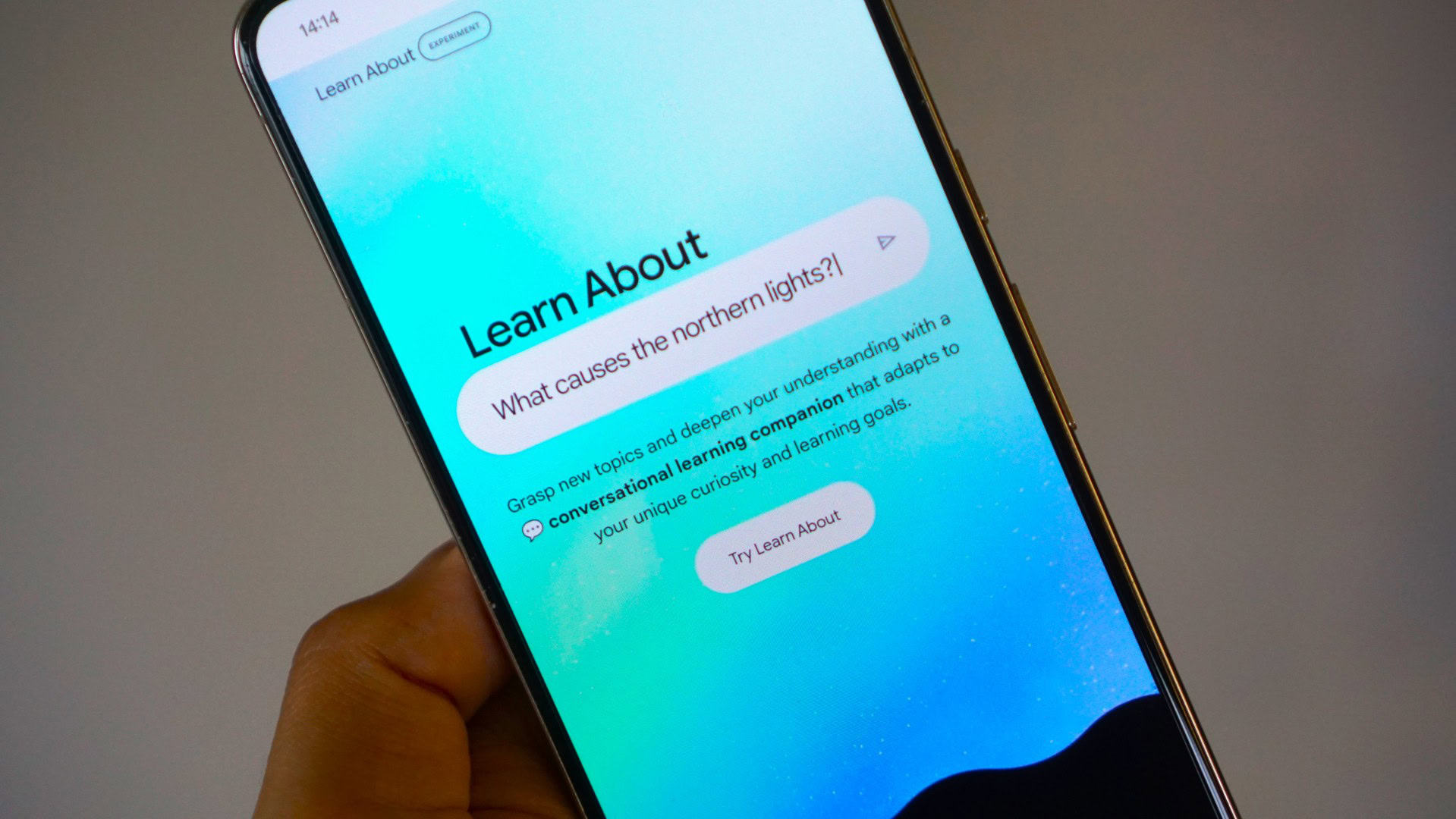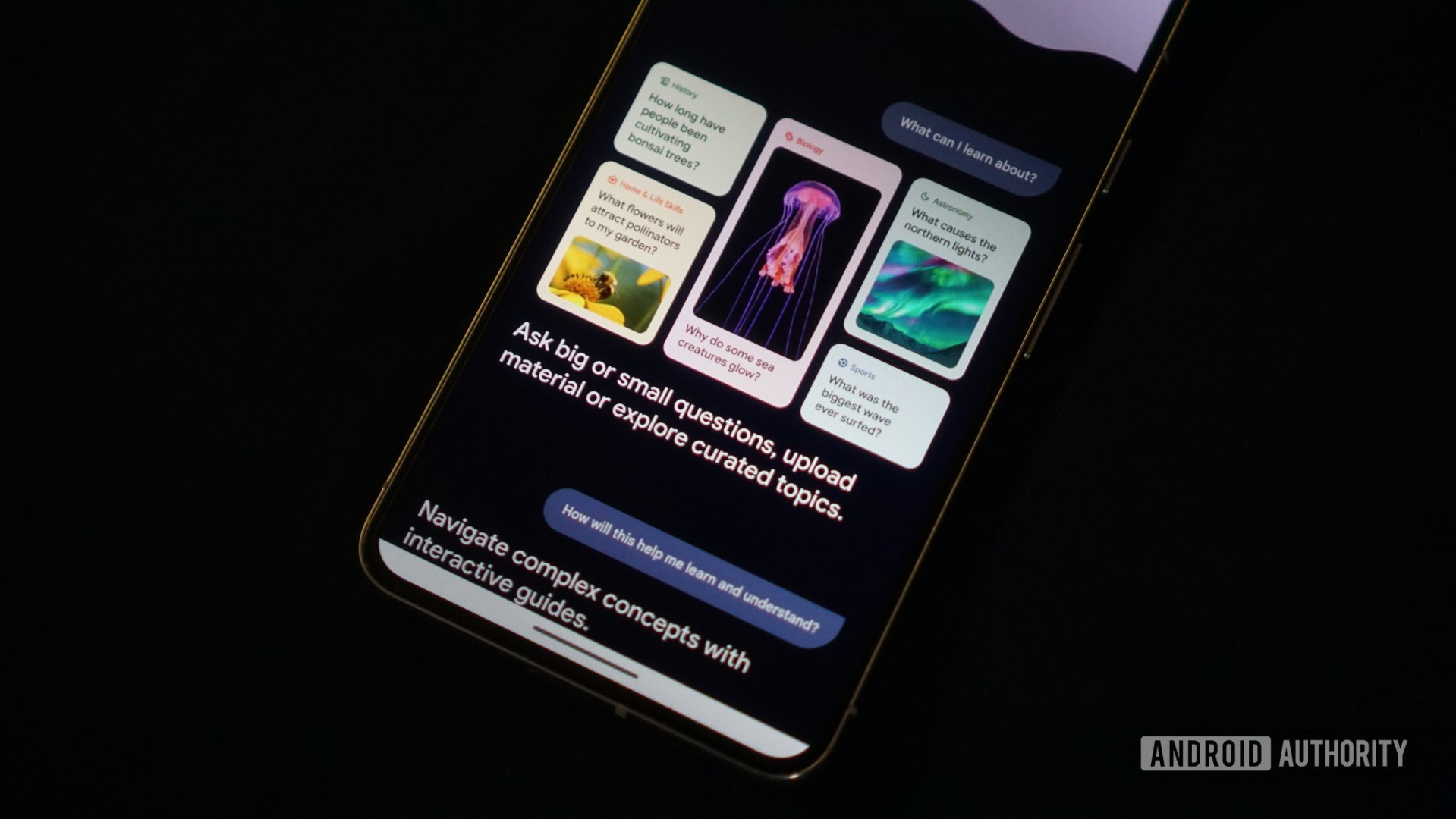Calvin Wankhede / Android Authority
Google has never been shy about experimenting when new tech comes along, often releasing new projects that fly under the radar for a while. Some stick around, while others quietly fade away. But every now and then, we get something that shows enough potential to become a full-fledged app someday. Learn About, Google’s latest experimental learning project, might just be one of those cases. It’s an ambitious tool designed to teach complex topics in a simplified and interactive way that sets it apart from Gemini and other AI chatbots. Here’s why I’m sold on it.
What is Google’s new Learn About app all about?

Calvin Wankhede / Android Authority
Learn About is Google’s new educational AI-powered web app that teaches you new concepts through textbook-style information blocks, quizzes, and other interactive elements. It may look like yet another AI chatbot on the surface, and it is indeed powered by a large language model, but it’s designed to simplify topics instead of leaving you with a wall of text to decode by yourself.
Interestingly, Learn About uses Google’s LearnLM model that’s optimized for “teaching and learning use cases”. In practice, it’s a much more conversational model than Gemini and I’ve found that it tends to respond like a friendly teacher. Learn About also relies on Google Search to comb the internet for fresh information, which allows it to cut down on hallucinations and cite its sources — arguably essential for an educational app.
All of that technical stuff aside, though, Learn About’s biggest strength is its user interface. It’s full of rich elements like images, videos, and colorful boxes as you can see in the screenshots below. But is there actual substance beneath all of these flashy elements? I tested it side-by-side against Gemini to find out.
Learn About vs Gemini: What does Google’s new AI app offer?
For academic topics, Learn About has a leg up over other AI tools as it can break down complex topics into more manageable chunks. In the following screenshot, for example, Learn About prompted me to dig deeper into the inner workings of wireless charging with quick links to detailed explanations on electromagnetic induction and Faraday’s law. Gemini, on the other hand, offered a short answer that did little to further my understanding of the underlying concepts.
Even if you’re not a student, it’s easy to see the utility of Learn About compared to a traditional chatbot like Gemini. For example, asking Learn About for a rundown on USB Power Delivery yielded a good mix of informational boxes and chiplets that I could click on. The latter directed me to explore related topics like USB PD’s optional Programmable Power Supply (PPS) mode. This revealed even more fancy elements that explained misconceptions, vocabulary, and other jargon.
Asking Gemini about USB Power Delivery resulted in a similar answer as Learn About, but without any of the helpful context boxes or follow-up suggestions to drill deeper. I’d have to manually type any further questions, which I may not even know about. So if you’re generally curious about a broad topic, the Learn About interface is much better for exploring topics and retaining information than Gemini.
Learn About: The future of learning or just a gimmick?
Google’s Learn About isn’t without its drawbacks, at least in its current state. While the app is excellent for providing structured overviews, it can feel a bit superficial if you’re looking for deep, detailed explanations. You can ask for deeper dives, but these are still limited to a few sentences with an emphasis on images and other media.
Learn About is also not as accurate as a true textbook, even if it tries to pass off as one. In the USB Power Delivery example above, I noticed it claimed the protocol can only deliver fast charging up to 100W even though the upper limit has been 240W for a few years now. Clearly, the ability to search the internet doesn’t eliminate hallucinations and Google needs to work on improving its models’ accuracy.
Google still has a hallucination problem, making its AI potentially untrustworthy for learning.
Finally, the interactive elements are currently a bit lackluster. Quizzes, in particular, only offer two choices and you can’t ask the AI to test your knowledge on an entire topic. Instead, a quiz will appear at random during the course of conversation. More activities that challenge the user would make the app a true learning tool, and not just a glorified answering machine.
On the flip side, however, we’re looking at a highly experimental app in its early preview phase. If Google sticks with it, Learn About could someday become as valuable as the search engine itself. The company has already practically cornered the education market with Chrome OS in the US, so it’s not difficult to imagine a future where Learn About becomes a companion to traditional teaching methods. That might be a bit optimistic given Google’s track record with experimental apps, but I’m rooting for Learn About’s continued development nevertheless.

